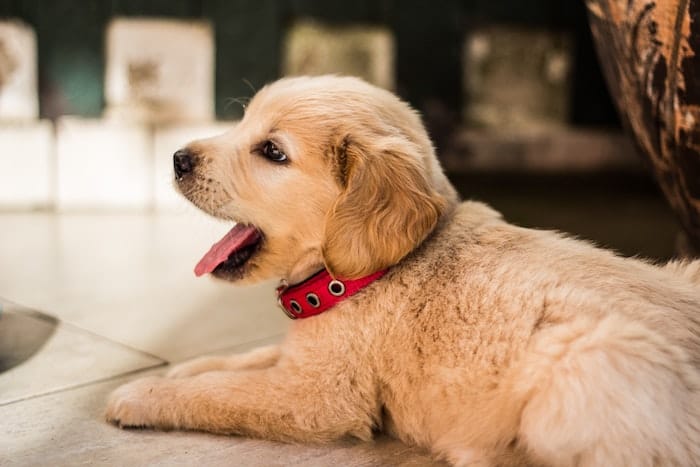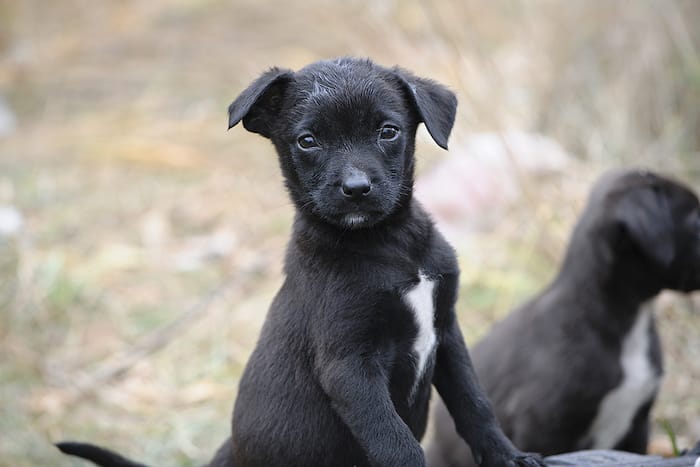Meta Description: Many dog owners don’t know that dental hygiene is essential for their pet’s health. Learn when to start brushing your puppy’s teeth and how to maintain the routine.
Many dog owners forget about their pets’ oral hygiene until they experience some issues. Plaque buildup and bacteria in dogs’ mouths can often lead to dental and gum diseases, so it’s important to recognize that brushing their teeth, even though it can seem like an annoying and unnecessary task, is very good for your dog.

Start as Early as Possible
There is no exact age at which you should start brushing your puppy’s teeth, but the sooner you start the better. Let’s say it’s not necessary to brush its teeth before the age of four to six months. When starting to brush your dog’s teeth while it’s still a puppy, they will sooner get used to it, accept it, and make it a much easier thing to practice later in life.
Make It a Habit
If a dog has spent all of its life without brushing teeth but needs to start when their breath smells bad, or has some dental problem, it’s going to be strange and hard for them to accept it. Creating a teeth-brushing routine when a dog is young will make a good habit and they will likely accept it and let you touch their mouth and clean their teeth when they are older, too, not to mention that regularly cleaned teeth will bring fewer dental issues all in all.
Here’s how to start:
- Get the right equipment
Make sure you get the right toothbrush for dogs. There are those for small and large dogs, adults, or puppies, so choose the one that suits your pup best. Stick to a dog toothpaste of good quality, the one that doesn’t make a lot of foam and tastes good to your dog. Toothpaste for humans must not be used on dogs as it may be toxic for them.
- Choose the right time and place
Morning or evening works best when you’re starting to brush your dog’s teeth, as that is a quiet time of the day, before going out and playing, or before bedtime. Before brushing the teeth ask your dog to sit, and praise every step of the process. Some dogs, especially the small ones may prefer lying down on something soft when getting their teeth brushed.
- Have patience and reward every step
Approach your dog with love and patience, stroke their head and the outside of the muzzle and lips before you start brushing their teeth. When your pet is comfortable, let it taste a tiny amount of the toothpaste to get used to it, and then reward them with a treat.
It can take several attempts before you succeed and your pet fully adjusts to the whole process of brushing teeth. A good idea is to start by first applying a bit of toothpaste to your dog’s teeth with your finger, and only later introducing the toothbrush. After brushing, take your dog for a walk or reward it with some food or play to reward them and connect this activity with those they like, and make it a positive experience.
- Develop a routine
Go slow, and gradually increase the number of teeth that you are brushing. If you notice that your pet is becoming impatient, stop the brushing and continue another time. Still don’t give up too fast, but try to establish a steady routine with daily brushing or at least a few times a week. Remember to always treat your dog and provide lots of praise to maintain a positive experience with this process.

Brushing Your Dog’s Teeth Prevents Dental Diseases
Missing to brush your dog’s teeth can lead to serious dental conditions and gum diseases. Without practicing dental hygiene, your dog can eventually experience:
- bad breath
- dental plaque
- gingivitis
- bleeding gums
- discolored teeth
- difficulties with eating and chewing
- tooth loss and fractures, etc.
The truth is that this doesn’t need to happen to every dog, however, it’s much more likely to happen to those with poor dental hygiene.
With any sign of dental issues, bring your dog to the vet immediately before the damage becomes bigger. Otherwise, make sure you visit the vet for regular check-ups, start brushing your dog’s teeth as soon as you get the chance, and do your best to maintain the routine. Regular care and brushing your dog’s teeth, along with the chew toys will prevent mouth diseases and ensure your dog a healthy life.
Related Reading
